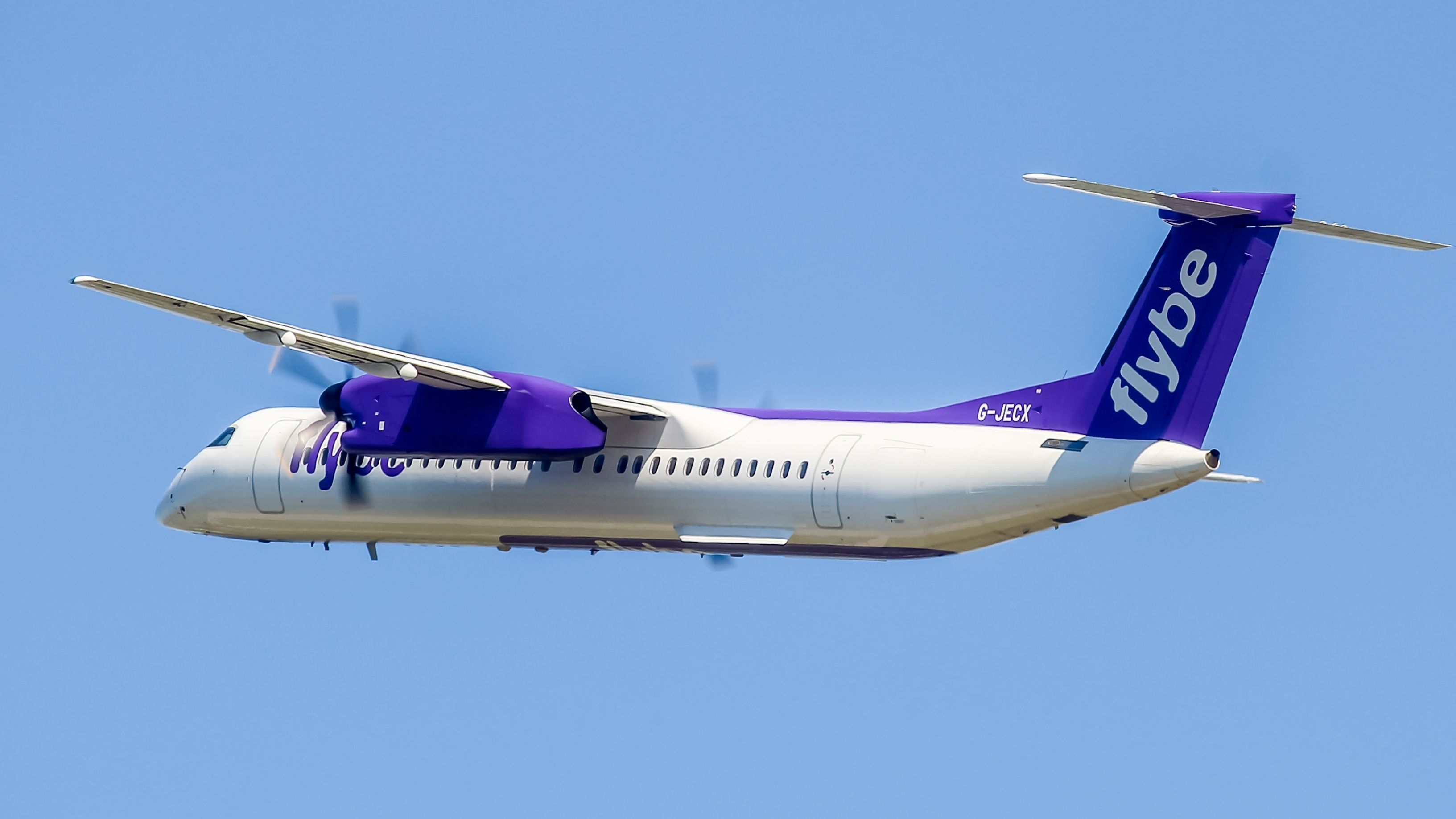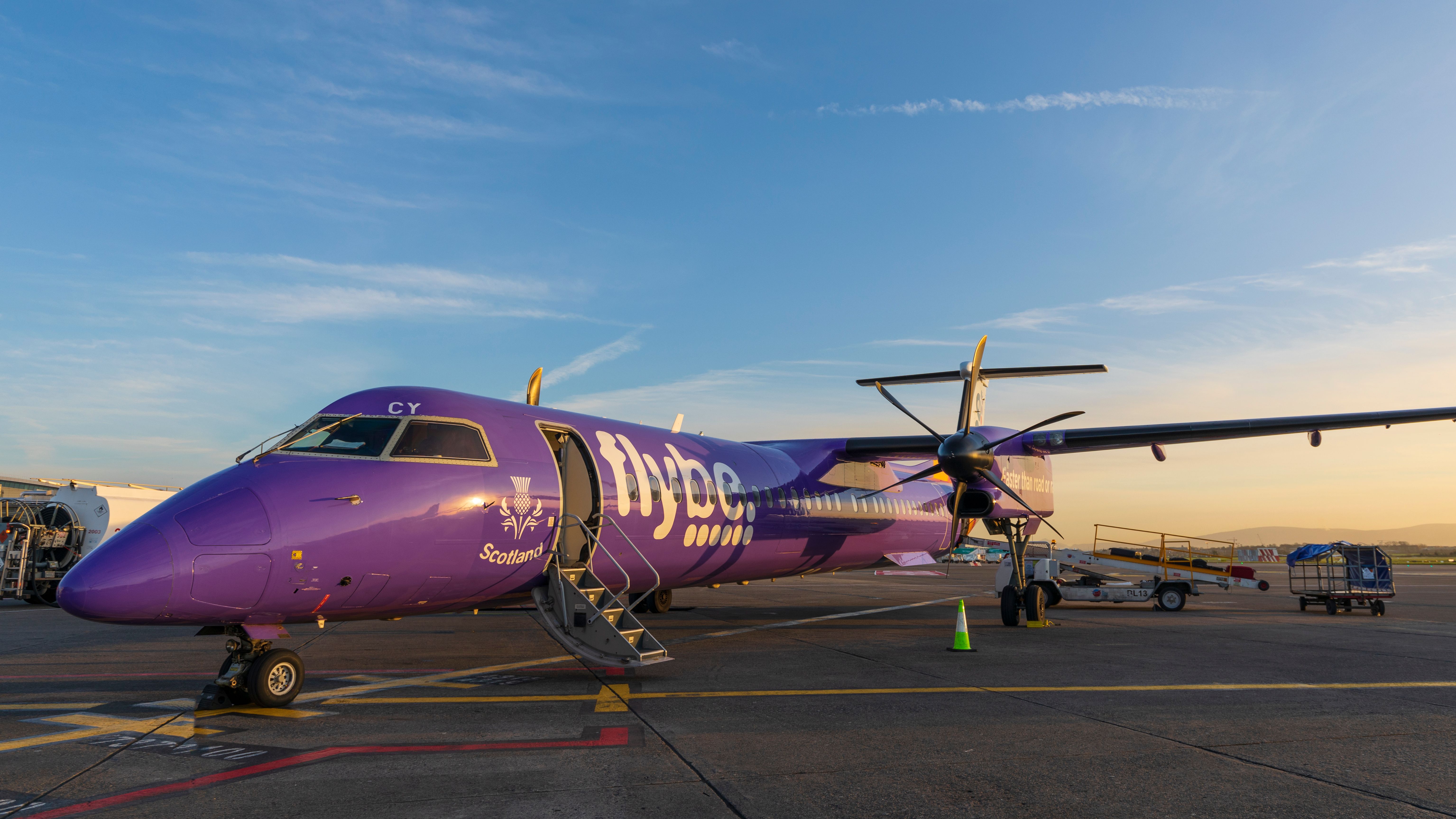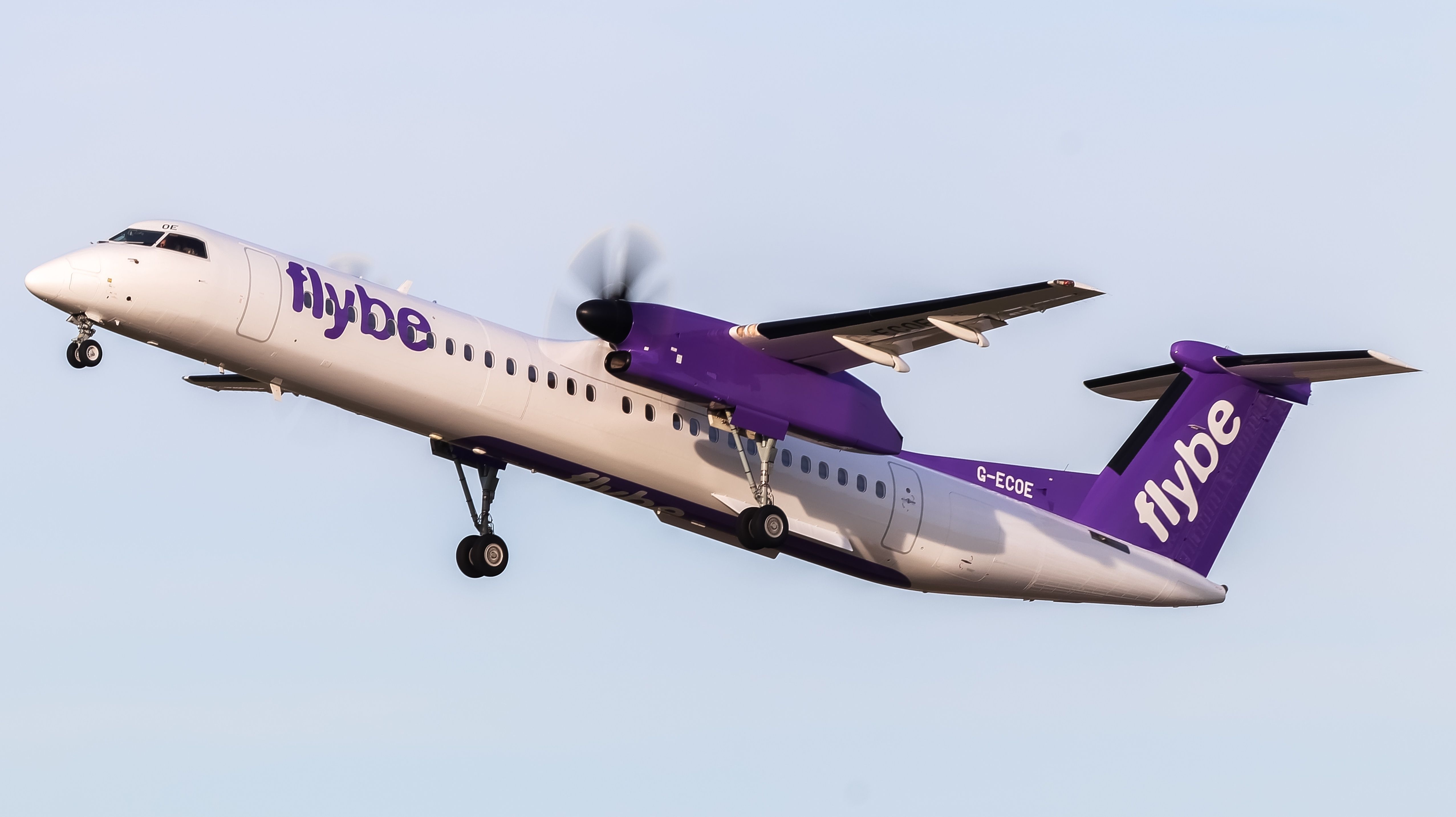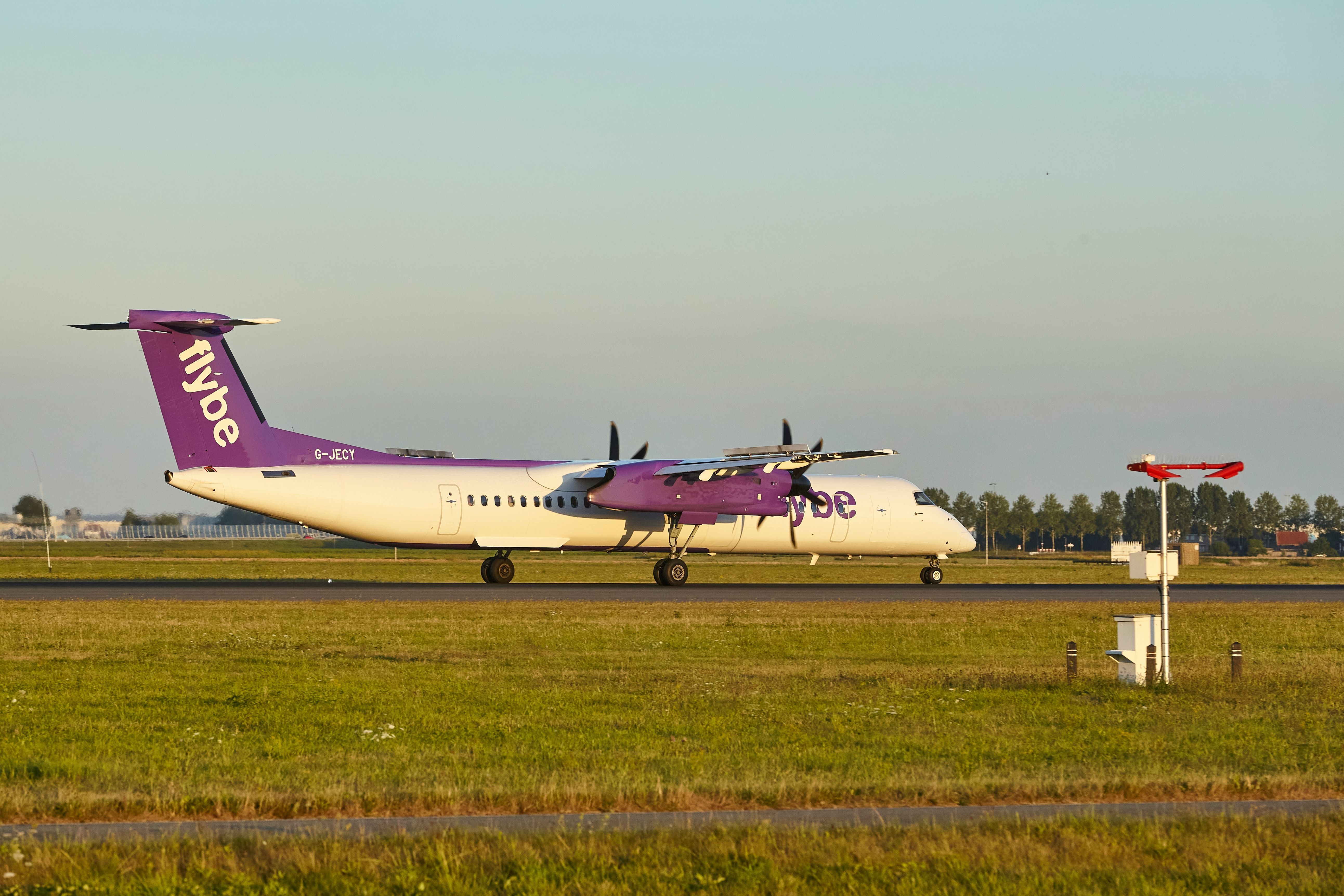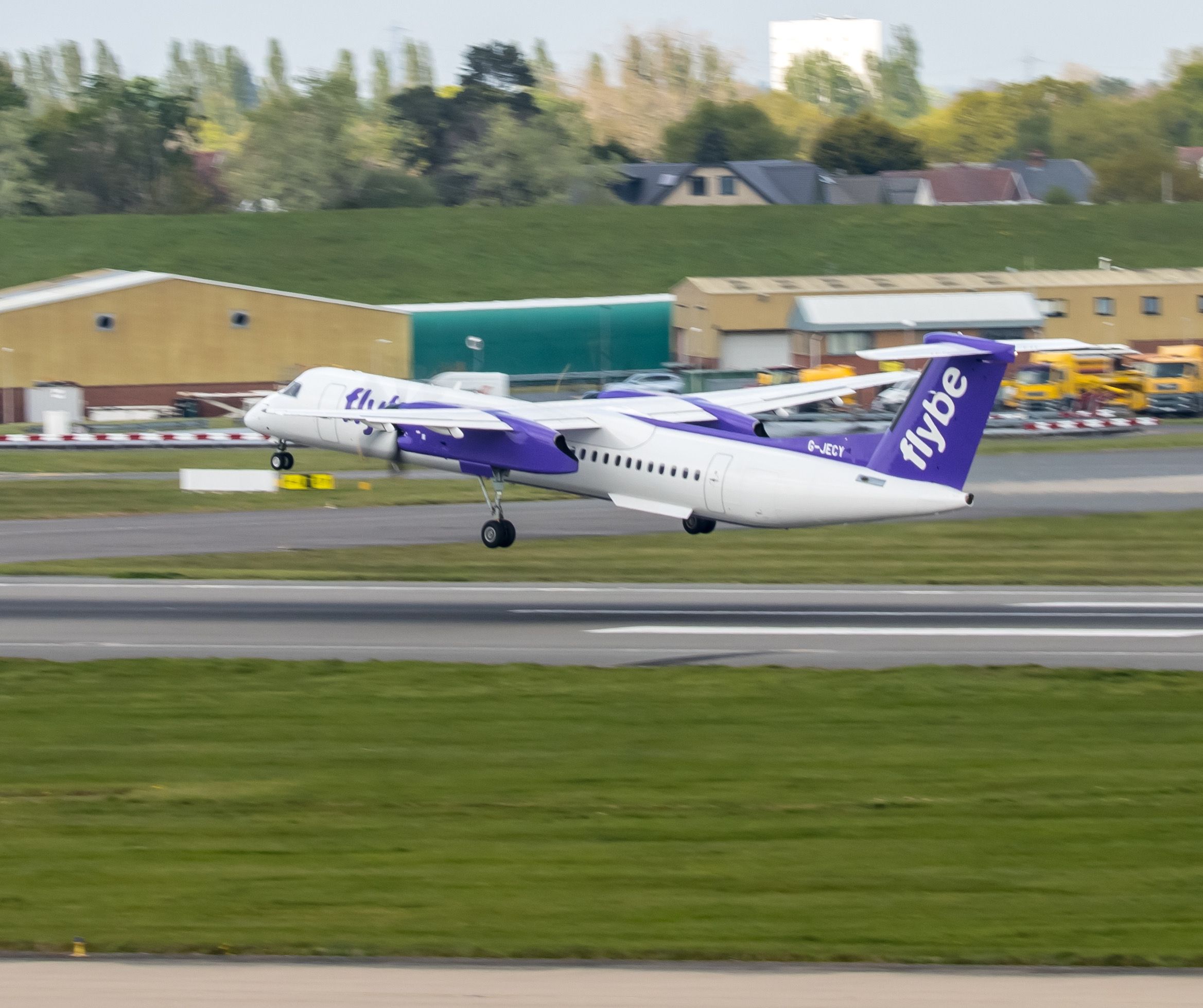Sometimes, one has to let it go. And that also applies to airlines that do not succeed in finding their place in the market they want to serve. This morning, the UK regional carrier Flybe announced it would cease all operations after being placed into administration.
This is the second time Flybe has grounded all its aircraft and shut down the business, the first time being at the dawn of the COVID-19 pandemic. Let's investigate further into the causes of Flybe's final demise.
A recap of the Flybe case
An airline ceasing operations is never good news. Besides the subsequent loss of jobs for the employees, one should also consider the disruption caused to passengers. This is particularly true when the airline is the only one offering air links between two areas, as is often the case for regional carriers like Flybe.
This morning, all Flybe aircraft have been grounded, and the administrators have advised prospective passengers not to travel to the airport, as there will not be a rescheduling of the flights. Two administrators have been appointed to steer Flybe during its final days, David Pike and Mike Pink from Interpath Advisory. They stated they aim to preserve essential elements of the carrier's operating system for a rescue transaction to remain possible.
The Flybe that has been placed into administration is the second attempt of the regional carrier to position itself as a leadingairline in the UK and European market after the original Flybe ceased operations in March 2020. In October 2020, Thyme Opco, a company linked to one of the previous stakeholders, Cyrus Capital, reached an agreement with the administrators to purchase the Flybe brand, thus being able to relaunch the carrier.
On April 13th, 2022, the new Flybe operated the first flight, connecting Birmingham, where the airline has its headquarters, to Belfast, another significant base.
What led to Flybe's second demise?
Have you ever heard the expression, "you can tell how something will go by how it begins"? Maybe this is just a saying, but in the case of the new Flybe, it also mirrored the reality of facts.
David Pike stated that the causes for the carrier's demise go back to its first days in April 2022. The most significant setback for the relaunched regional carrier was the impact COVID-19 had on supply chains, which dramatically impacted the delivery of new aircraft. Indeed, Flybe suffered a delay in the delivery of 17 aircraft, which the carrier needed to operate its new schedule.
Get the latest aviation news straight to your inbox: Sign up for our newsletters today.
An airline's capacity ultimately depends on its fleet and schedule. Fleets and schedules have to be aligned, i.e., the airline needs the right fleet, both in terms of size and aircraft type, to operate those routes for which demand exists. Wrong fleet and network management negatively impact an airline's capacity and, thus, its competitiveness.
In terms of schedule and network, Flybe was doing fine. Before its first demise in 2020, the airline was carrying around 10 million passengers. When it recommenced operations last April, the airline aimed to restore total capacity, focusing on progressively developing connectivity in the UK regional market and cooperating with other carriers to provide enhanced access to Europe and the US markets. To this aim, however, the airline needed to grow its fleet, which was prevented by the delay in the delivery of the ordered aircraft.
According to ch-aviation, the new Flybe started operations with eight De Havilland Canada (DHC)-8-Q400s, which seat 90 passengers. The lack of capacity due to aircraft shortage first materialized last July, when Flybe had to reduce frequencies over the busy and profitable summer season.
Notably, the carrier had to suspend three routes from its base at George Best Belfast City Airport (BHD), suspending services to Aberdeen, Inverness, and Newcastle. Some essential air links, like the one between London Heathrow (LHR) and Belfast City (BHD) and the Isle of Man (IOM), have never been operated.
Notwithstanding the lack of capacity, Flybe was optimistic about its future, announcing increased frequencies for its 2023 summer schedule and adding new destinations. Notably, the carrier had announced the introduction of the air service between its main base in England, Birmingham (BHX), to Bergerac (EGC) in France.
Additionally, from the beginning of July, Flybe was to launch a new route from Birmingham to Aberdeen (ABZ). According to Cirium, Flybe was scheduled to serve 17 destinations across the UK and Europe in 2023. In the week between January 30th to February 5th, the carrier should have operated 292 flights for a total capacity of 22,700 seats. With such a schedule and the planned increased frequencies, the carrier's fleet had become unsuitable to meet demand.
Wrong timing
Flybe 2.0 was not the only airline launched or relaunched in the aftermath of the COVID-19 pandemic. Every time the aviation industry suffers a significant crisis, the trend of new carriers being launched is usually on the rise, as there is a vast availability of aircraft, and interest rates are generally lower.
Nonetheless, another truth about the aviation industry is that it is never black or white. Each airline operates in its macro-environment, characterized by n-variables that make it necessary to consider every airline as a single entity in its own "habitat."
In the case of Flybe, the carrier had to face the inability of new investors or owners interested in investing in the airline, the main reason being that the aviation industry is still adjusting to a new normal, whose dynamics and logics are the consequences of the COVID-19 pandemic.
Had the economic context been different, Flybe could have found new entities interested in poring money in the carrier, making its survival and, who knows, success possible.
How do you think Flybe could have managed the lack of capacity? Let us know by clicking on the comment button below!
Source: TheBusinessDesk

